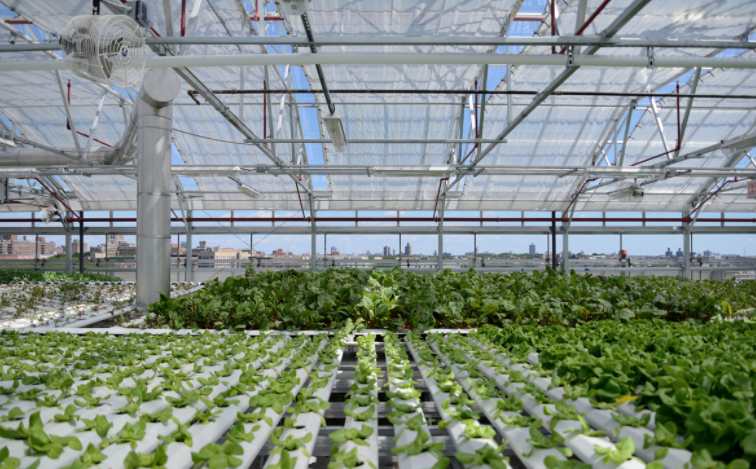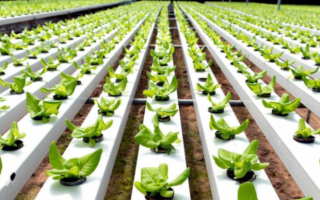Should Hydroponic Farming Be Eligible for Organic Certification?
Take a look to our unique idea of Agroships
This new from EcoWatch.com
By Dan Nosowitz
Last month, the National Organic Standards Board met in Denver, Colorado, to discuss what might be the most hotly-debated subject in all of eco-agriculture: What, exactly, does "organic" mean?
The U.S. is unlike most countries (or regions, like the EU) in that our organic certification can legally be extended to crops that are not grown in soil. Hydroponic and aquaponic produce is, typically, grown in perpetually-flowing water in which nutrients are dissolved, and in the U.S., some farms using these methods can be certified organic. Proponents of the hydroponic organic certification say that their farms can be more energy- and water-efficient than soil-based farms, that they can reduce transportation costs by being built basically anywhere (including indoors, smack in the middle of cities), and that they can be just as sustainable and eco-friendly as any traditional farm.
The other side—the side that wants organic certification to be restricted to soil-based farms—sees hydroponic organics as a victory for a spooky sort of agriculture controlled by corporations that perverts the very soul of the organic movement.
What does the National Organic Standards Board, which is in charge of actually making this decision, think? They're not sure yet. They determined in Denver that they have more questions than answers, and that they'll need more data before making any decision. For now, hydrorgranics remain legal.
...
 ,
,
...
...
What About a New Label?
I offered a few possible solutions to this issue, all of which … failed. What about a totally new label, I asked both Cufone and the folks from Cornucopia? Say, USDA Certified Sustainable Hydro, with totally new rules for what makes a truly sustainable and ecologically-friendly hydro farm. Has a nice ring to it, right? Cornucopia said sure, who cares, they can do whatever they want. Cufone, though, wasn't into it.
"No," she said flatly. "Because USDA organic is the thing, it's the thing that consumers know, and I think it's really important for it to be the significant label in the United States. I think adding new labels dilutes the USDA organic label, and I also think the whole 'separate but equal' thing hasn't worked so well in the United States over the years." Whoof.
Okay, how about this genius idea of mine: USDA Organic Hydro. Again, separate rules, and a new label, but it has the word "organic" in there. Cufone thought this was a great idea. The Cornucopia people, not so much.
"It's pretty telling that they want to steal our word," said Dixon. Cornucopia does not want any farm besides a traditional operation wherein crops are planted in the Earth to have access to the word "organic," in any way. That includes hydroponics, aquaponics, rooftop farming, container farming, all of it. "We've worked really hard for this word, and it means something, and they want it, and it's not theirs," said Dixon. "Let them build it for 30 years, like the organic farmers did."
For Cornucopia, any use of the "organic" word is, yes, a perversion, but also not enough of a differentiation; considering how lousy the state of agricultural education is in this country, Cornucopia worries that people won't much care about the difference between "organic" and "organic hydro." And then they're in the same position they're in now: being boxed out by a bunch of techy corporations.
So Where Do We Go From Here?
There is no conclusion on the future of organics. It is a complete mess. Without proper education to ensure that customers know or care about the difference between conventional, organic, hydroponic, sustainable hydroponic and who knows what else, as well as stricter rules to ensure that those labels actually mean what customers think they mean? We're stuck with basically what we have, which is kind of a free-for-all.
Both sides have a point; both the Cornucopia folks and Cufone want the farmers they represent to be recognized and paid for her dedication to sustainability. How to ensure they both get what they deserve? There's no real solution. That's what the National Organic Standards Board is grappling with. As to when they'll make a decision? Any decision at all? We have no idea.
Reposted with permission from our media associate Modern Farmer.

